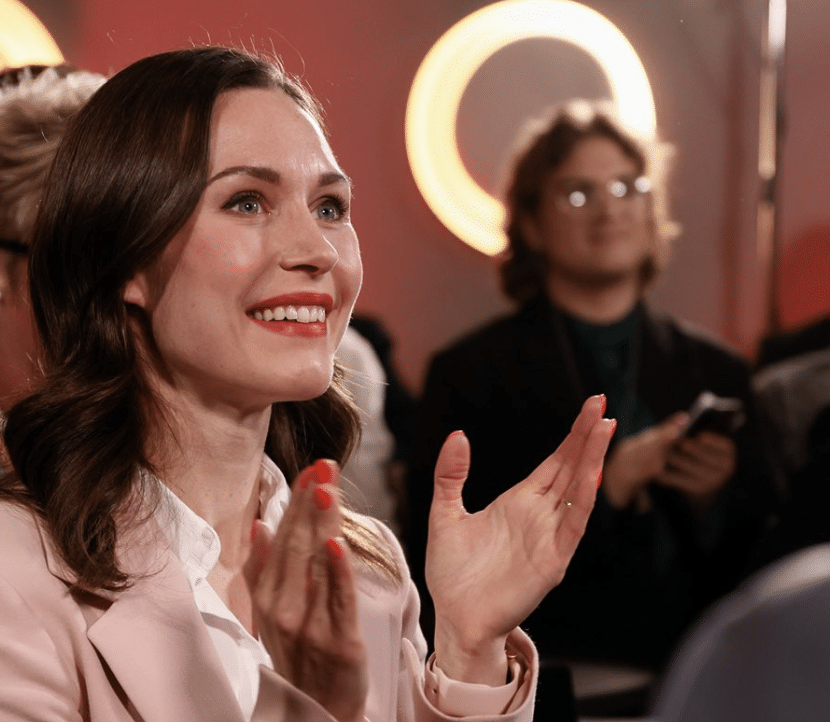The world’s lost four of its female heads of state in just three months, with Finland’s Prime Minister Sanna Marin conceding defeat following the country’s general election over the weekend.
Prior to Marin’s defeat, women-led just 13 governments among the 193 member states of the United Nations. Now there are just 12.
Less than a third of UN member states have ever had a woman as elected leader, according to Pew Research Center.
While three women have taken the leadership of UN recognised nations within the past year, including Dina Boluarte in Peru, Giorgia Meloni in Italy and Borjana Kristo in Bosnia-Herzergovina — three have resigned or been defeated in elections in just the past three months. They include Marin, Jacinda Ardern stepping down in New Zealand, and Natalia Gavrilita, who resigned from office and as Prime Minister of Moldova in February. Nicola Sturgeon has also stepped down as the First Minister of Scotland (Scotland is not recognised as a separate UN state, instead part of the UK.)
Marin’s Social Demoncrats finished a surprise third in the weekend’s election, with a far-right party achieving a record vote to come in second on the ballot.
Petteri Orpo, who leads the conservative National Coalition Party, says that on the basis of the result, the party is set to start negotiating the next government of Finland — he could form this government with either the Social Democrats or the far-right Finns Party.
Marin acknowledged defeat and congratulated both the National Coalition Party and the Finns Party.
“Democracy has spoken,” she said. “The Finnish people have cast their vote, and the celebration of democracy is always a wonderful thing. We have good reason to be happy about this result.”
With almost 72 per cent of the eligible population voting, it was a tight three-way race. Marin’s SDP achieved 19.9 per cent of the vote, the NCP won 20.8 per cent and the Finns party 20.1 per cent. As in many parts of the world right now, cost of living and inflation came up as significant election concerns for voters.
As a leader, Marin was known for her strong response to the COVID-19 pandemic, as well as for initiating policies to address climate change and standing up to Russia’s Vladamir Putin in the face of the invasion of Ukraine. Finland, which shares a border with Russia, is also set to join NATO in the coming ways, thanks to a successful campaign led by Marin.
Marin has also demonstrated a strong stance on equality and climate change — instigating one of the most ambitious climate change programs in the world — as well as Finland’s social welfare program. She’s regarded for her collaboration, having led a five-way coalition on becoming leader in 2019, with all such party leaders female at the time.
Marin has also moved to take on sexism in politics and publicly shut down the “public fascination” with her age at the World Economic Forum in Davos in January. At a press conference with the former New Zealand Prime Minister earlier this year, Marin also famously shot down a question from a male reporter asking if they were united because of their “similar age”. Marin responded: “We are meeting because we are both prime ministers.”
And through it all, Marin has overseen Finland to continue its record as being named the happiest country in the world, according to the World Happiness Report released last month.
Marin became prime minister in 2019 at the age of 34, making history as the youngest-ever female prime minister in the world. She became a member of Parliament and 2015, and the head of the city council of her industrial hometown of Tampere at the age of 27.
While the world’s media has put plenty of emphasis on her “partying” and being a “rock star” — extending from her appearance at festivals as well as a video of her dancing that was leaked to media last year — Marin has been much more for Finland, and much more for the world in demonstrating a form of leadership that is courageous, focused, empathetic and humble.



